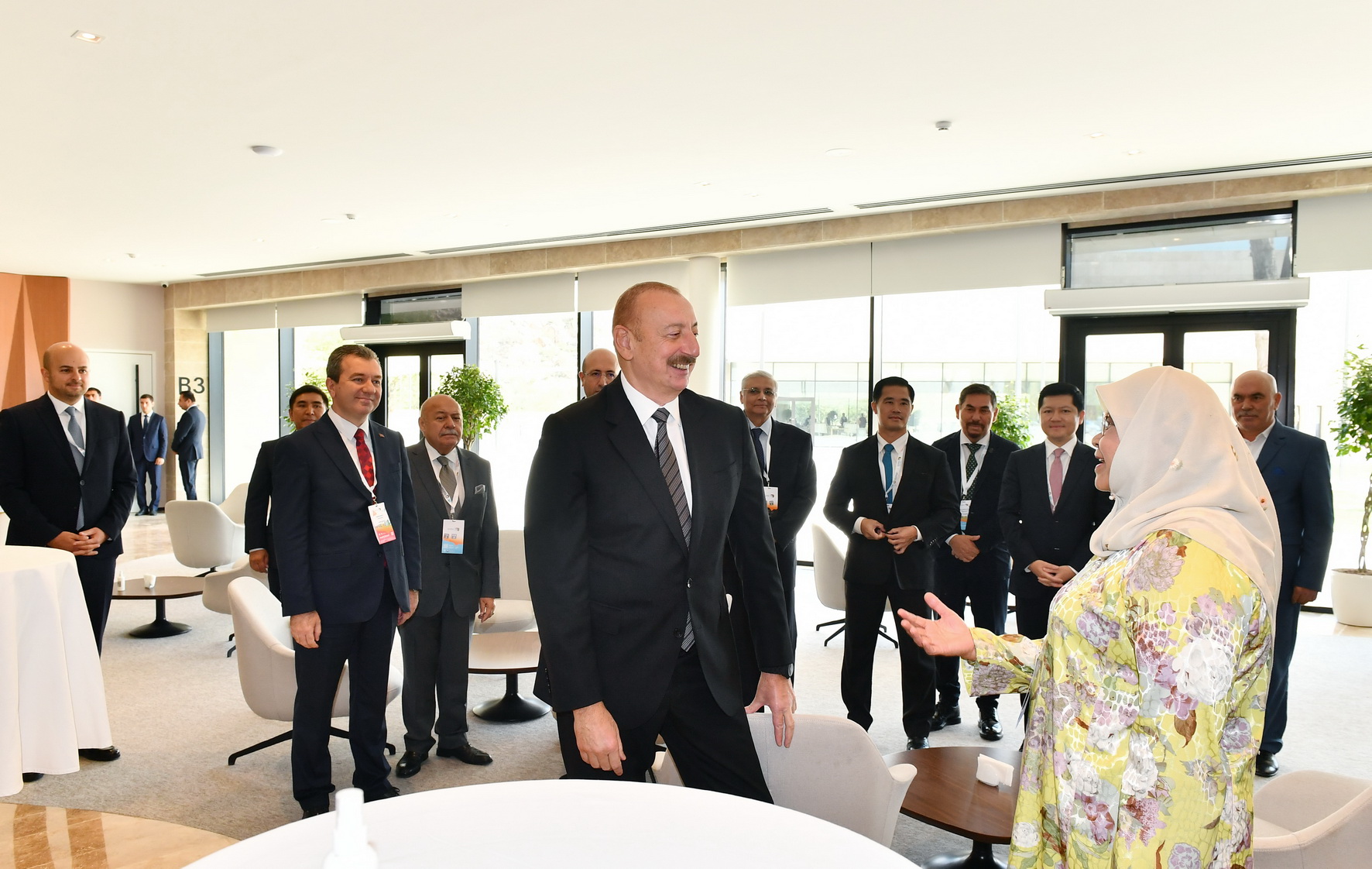Promising corridors: Zangezur and Araz. Turan
The Zangezur Corridor and Geopolitical Realities
Geopolicy – Great East
2023 September 29 ( Friday ) 12:23:05

Turkish President Recep Tayyip Erdogan has ignited a fresh wave of increased interest in the South Caucasus with his surprising proposal to explore an alternative corridor to replace the Zangezur corridor, which connects Azerbaijan and its exclave of Nakhchivan to the rest of the country. Erdogan’s remarks came following a meeting with Azerbaijani President Ilham Aliyev in Nakhchivan on September 25, where discussions focused on the contentious transportation route.
Erdogan’s proposal hinges on Armenia’s willingness to cooperate. He stated that if Armenia were to abandon the Zangezur corridor project, Turkey and Azerbaijan would forge a new transport corridor through Iran. In his vision, this corridor would serve as a vital artery for global cargo transportation, running in an east-west direction through the South Caucasus.
“The Zangezur corridor will become the second transport artery of global cargo transportation in the East-West direction through the South Caucasus after Baku-Tbilisi-Kars,” Erdogan declared. “Its realization depends on the political will of Armenia.”
Erdogan’s words, which could be seen as either an olive branch or a veiled ultimatum, have elicited mixed reactions from regional experts. Thomas de Waal, an analyst at the Carnegie European Center, speculated that Turkey and Azerbaijan may be preparing to issue an ultimatum to Armenia regarding the Zangezur Corridor, with potential backing from Russia. This would mark a significant escalation of the ongoing dispute over the corridor’s future.
Armenian Prime Minister Nikol Pashinyan, however, has vehemently rejected the notion that Armenia has ever made commitments to establish the corridor. He stated, “Armenia has never made corridor commitments anywhere, either in writing or verbally, and will never accept such comments.” Pashinyan’s position runs counter to paragraph 9 of the Trilateral Statement of November 10, 2020, which stipulates that “Armenia guarantees the security of transport links between the western regions of the Republic of Azerbaijan and the Nakhchivan Autonomous Republic.”
The recent developments follow a history of discussions surrounding the Zangezur Corridor. In July of this year, a joint meeting between Azerbaijani and Iranian officials emphasized the importance of enhancing regional transit potential. They discussed the acceleration of projects aimed at developing and diversifying transport connections, including the establishment of new communication links between Azerbaijan’s East Zangezur Economic Region and the Nakhchivan Autonomous Republic via Iran.
One significant alternative to the Zangezur Corridor is the “Araz Corridor,” which Iran has shown interest in developing. This corridor, which would connect Azerbaijan to Nakhchivan through Iran, has gained traction as a potential replacement for the contentious route through Armenia. Progress on this project was stalled in 2022 due to various geopolitical factors, including Iran’s actions against Azerbaijan and a terrorist attack on the Azerbaijani embassy in Tehran.
With the Zangezur Corridor’s future uncertain and alternative routes in consideration, it remains to be seen whether Armenia will reconsider its position. The upcoming meeting between Prime Minister Pashinyan and President Aliyev on October 5 in Spain may hold the key to resolving this ongoing dispute. The possibility of a constructive outcome has been bolstered by recent developments and a perceived shift in the dynamics of the South Caucasus region.
A Geopolitical Nexus
In the complex tapestry of international geopolitics and global trade, few corridors measure up to the strategic importance of the Zangezur Corridor. Spanning a mere 50 kilometers in length, this narrow passageway serves as a linchpin connecting the realms of Greater Europe and Greater Asia. Its significance, however, extends far beyond its modest dimensions, as it effectively seals two critical North-South routes and facilitates the Middle Corridor, a nexus of economic and geopolitical importance.
To grasp the magnitude of the Zangezur Corridor’s role, one must appreciate its role in uniting the Caucasian transport hub with communications extending in four cardinal directions of the world. Moreover, it links with the Iranian transport hub, positioning itself as a pivotal hub in the southern hemisphere’s transportation network.
From the northern approach, encompassing Western Europe, Russia, Central Asia, Turkey, Georgia, and Azerbaijan, as well as the southern front consisting of Iran and India, substantial efforts have been undertaken to realize the dream of transport reunification between the South and the North. These endeavors continue apace, particularly in the Iranian sector of this monumental project.
In the 21st century, the geo-economic and geopolitical significance of international transportation networks has grown exponentially, elevating the North-South transport corridor to paramount importance. This multifaceted network, spanning over 7,200 kilometers, boasts maritime, railway, and road connections. It promises to slash both distance and time by up to 40% when compared to conventional routes, resulting in a 30% cost reduction. India, in particular, stands to benefit by saving up to 20% on container shipments to CIS countries in Central Asia.
The potential of this transit network to replace the Suez Canal route is a prospect that cannot be underestimated. Theoretically, it could trim the distance of the current Suez route from 16,000 kilometers to a mere 7,200 kilometers and cut travel time between South Asia and Northern Europe from 60 to 30 days. Such a development would significantly reduce continental shipping costs and could challenge the supremacy of the Suez Canal.
In the grand scheme of geo-economic realignment, India and China, the South Asian giants, find themselves in a fierce competition amid the rapidly shifting global landscape. The emergence of the North-South corridor as a potent rival to China’s “One Belt and One Road” Initiative has set the stage for a battle to reshape global trade dynamics. India, capitalizing on the North-South international transport corridor’s potential, seeks to forge new alliances and policies while circumventing Pakistan, thereby limiting China’s influence in the region through investments in the Gwadar port.
In the face of China’s expanding influence in India’s neighboring countries, New Delhi is pursuing substantial long-term investments in Iran’s Chabahar Free Zone to exploit South Asia’s transit potential in response to Chinese investments in Pakistan’s Gwadar port. Chabahar, located on the border of Pakistan’s Baluchistan, offers India a viable alternative to Gwadar.
In this tussle for supremacy, both India and China stand to gain from the Iranian North-South hub, despite their fierce rivalry. The Chabahar Free Zone, with the addition of the Chabahar port and its vast expanse of 80,000 hectares, stands as the linchpin on the North-South corridor, connecting the Oman Sea to the Indian Ocean.
This monumental transport corridor, envisioned in 2000 and subsequently ratified in 2002, has garnered support from a multitude of nations. From Armenia and Azerbaijan to Kazakhstan, Belarus, Tajikistan, Turkmenistan, Ukraine, Kyrgyzstan, Turkey, Syria, and Bulgaria, several countries have joined this transformative initiative. Furthermore, European nations like Finland, Estonia, and Latvia have expressed interest in participation, solidifying this project as one of Eurasia’s most pivotal communication routes, intertwining the destinies of European, West Asian, and Central Asian nations on a grand scale.
What is a Corridor?
In the ongoing discussions surrounding the Zangezur region, the term “corridor” has emerged as a pivotal concept. It represents a key element in the complex geopolitical dynamics of the region, particularly in the context of Armenia’s concerns and Azerbaijan’s aspirations.
At its core, a corridor can be defined as a designated passage or route that allows for the movement of goods, people, or services between two distinct areas. In the case of the Zangezur corridor, the discussions revolve around the fear that it may acquire the status of an extraterritorial passage. For Armenia, this development raises significant apprehensions about its territorial integrity, particularly in the Meghri district, as the historical jurisdiction of Western Zangezur, now known as the Meghri district, once belonged to Azerbaijan.
Armenia’s stance on this matter is unequivocal: it does not intend to grant Azerbaijan a corridor through its territory. However, Armenian Prime Minister Nikol Pashinyan has expressed a willingness to open roads for Baku, a distinction that holds importance in the ongoing negotiations. Pashinyan’s statement highlights Armenia’s readiness to facilitate transportation for Azerbaijan without granting it a dedicated corridor.
Notably, Azerbaijan’s position on the establishment of the Zangezur corridor enjoys broad international support.
To comprehend the concept of a transport corridor in the international lexicon, it is crucial to distinguish it from a mere road section. A transport corridor encompasses a multifaceted network of interconnected elements, including logistics experts, railway station staff, customs officers, tax inspectors, and border guards. Each of these entities plays a pivotal role in ensuring the seamless functioning of the corridor. The primary objective of this network is to optimize the overall system’s operation, explore more efficient delivery methods, and ensure the legality and taxation of goods in transit.
Upon its activation, the Zangezur corridor will inevitably acquire the status of a fully-fledged transport corridor, complete with the intricate web of system elements as described earlier. Given the historically strained relations between Azerbaijan and Armenia, this corridor will demand heightened security measures to safeguard its functionality. Furthermore, it is an integral component of the International Transport Corridors (MTK) North-South and TRACECA, endowing it with international significance and reinforcing its importance in the broader regional context.
It is worth noting that even during the Soviet era, when the Zangezur (Megrinsky) transport section existed within a single country, it was commonly referred to as a corridor. Experts such as Vladimir Egorov, director of the scientific school “Economic Theory” at the Plekhanov Russian University of Economics, and Vladimir Stoll, professor at the Diplomatic Academy of the Ministry of Foreign Affairs of Russia, have emphasized that recent agreements between Azerbaijan, Armenia, and Russia hold the potential to revive the “transport corridor” that once connected Azerbaijan with the Nakhichevan exclave during the Soviet era. This prospect underscores the corridor’s historical and geopolitical significance in the region.
The Corridor as a guarantor of stability and peace
In the midst of the complex discussions surrounding the Zangezur corridor, a pragmatic shift can be expected from Yerevan, despite the ambiguous and contradictory rhetoric from the Armenian side. As we delve into the core of global transport policies and the interests of multinational companies seeking to streamline the movement of goods while reducing costs and transit times, it becomes evident that the region’s logistics hold immense appeal. Armenia, in this context, remains a pivotal but challenging transport hub that cannot be bypassed and, more importantly, cannot be ignored, even if doing so carries undesirable consequences. Yerevan is increasingly recognizing this reality.
A significant development occurred in June of this year with the convening of a trilateral working group comprising Vice Prime Ministers from Azerbaijan, Armenia, and Russia. This meeting yielded a comprehensive document that underscores the initial steps toward unblocking transport links in the region, starting with the restoration of the Yeraskh—Julfa—Meghri—Goradiz railway. The document also outlines key principles for border crossings between Azerbaijan and Armenia while emphasizing the importance of respecting the sovereignty of both nations, as articulated by Deputy Prime Minister of the Russian Federation Alexey Overchuk.
The recent events in Karabakh, which have brought a new level of clarity to the geopolitics of the region, could potentially accelerate the recognition of the imperative to open the Zangezur corridor. With its international status, this corridor can serve as an additional guarantor of regional security, including that of Armenia itself. Any attempts to obstruct its development are likely to elicit responses from transnational entities keen on its establishment, further highlighting the corridor’s significance on the global stage. As the geopolitical situation continues to evolve, the fate of the Zangezur corridor may become a key determinant of regional stability and economic development.



































